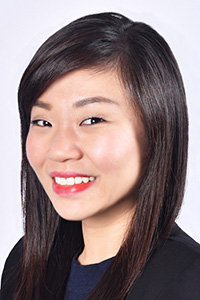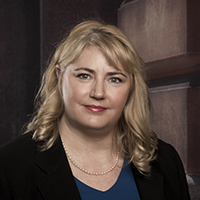Celebrated annually on 8 March, International Women’s Day has been a driving force behind championing diversity, equity and inclusion (DEI). While much has improved to ensure DEI is embedded at the organisation level, more can be done to bridge existing gaps. This year’s theme, #BreakTheBias, is particularly apt given that gender stereotyping and low level of women participation are still perennial challenges in the tech sector.
DEI is at the core of ESET’s DNA. We’re committed to challenging gender stereotypes in tech to ensure all employees are included and given fair recognition. We’re proud to have achieved gender parity in our ESET APAC leadership team. We also have various initiatives in place globally such as leadership development programmes and scholarships for tertiary students who’re pursuing a career in cybersecurity to build up our talent pool and address any form of gender misconceptions in cybersecurity.
In this two-part interview series, we speak to four ESET female leaders on the biases women face and what they’ve done or are doing to overcome these stereotypes.
Part 1: Jane Ng, ESET Head of Marketing for APAC and Kelly Johnson, ESET Australia Country Manager
1. What inspired you to join the cybersecurity industry?
Jane: Prior to joining ESET, I was in the beauty industry for three years in a regional marketing role. In 2012, I jumped on the chance to join ESET as I have always been fascinated by technology and its impact on our daily lives. I felt the role could offer a broader scope and growth opportunity, and I was also interested to see how I could apply my marketing knowledge in a completely different sector and at the same time expand my expertise.
Kelly: I have been in the IT industry for 32 years now, in and out of software. At the end of the day, software makes hardware work, organises our lives and allows us to grow businesses, learn, and innovate. I joined the cybersecurity industry as a focused area where I felt I could help customers by providing a service that protects technology. There is pride and purpose in working in the cybersecurity industry, as you’re helping your customers to not only grow their business but also protect their customers and end-users to be safe from an ever-changing and growing threat environment.
2. Some of the key challenges in the tech sector are gender stereotyping and the low level of woman participation as a result of biases. Have you personally experienced gender-related biases and what did you do to overcome them?
Jane: The tech industry has always been regarded as a male-dominated sector, and there is still a perception in our society that women might not be as tech-savvy as men. Back in my school days, I too had a bias, thinking the tech industry is not as exciting as the beauty industry. It didn’t even cross my mind that one day, I would end up in this industry. But look at where I am now, having made the leap. Personally, I believe taking the time to constantly upskill and stay at the forefront of what one is doing is the key to success.
Kelly: One of the challenges that I had faced was to work with people who underestimated me because of my gender. I have had to deal with gender bias since an early age when I played golf. Back then, when I joined a tournament or needed a team of male players, some of their eyes would roll because I am a female. Then, I would outdrive all of them! It was very gratifying but a lesson to never judge a book by its cover. I was proud to be the first woman in Oregon to receive the Evans Foundation Caddy scholarship to university. Having a golf scholarship and working at a golf course allowed me to get really good at the game. These types of gender assumptions were everywhere when I started in IT – I have been degraded and looked over many times, but I didn’t take it quietly. Presenting the facts with your voice and not accepting bad behaviour leads to a greater level of respect from those around you. Over the years, there have been improvements with lesser biases and gender assumptions as compared to the past, which is always good to see. I overcome these challenges by always seeing the best in everyone and knowing we are all just human.
3. Can you share the one thing you’re doing right now at work or at home to promote diversity, equity and inclusion (DEI)?
Jane: I make it a point to build a culture where everyone around me, regardless of gender, is confident to speak up and believe in their own abilities, be it at home or around my peers. It is important for more women to be proud of their accomplishments and be comfortable speaking about them. Women should not be afraid to take ownership, dispel any prejudices and be more assertive. A confident attitude is key to propel forward.
Kelly: My role as country manager at ESET Australia is to lead the team by example and show them what success can look like. Our team of 20 are represented by 16 different nationalities from around the world. This also means that we need to respect the different beliefs and customs of our team members. For example, we celebrate all the different holidays including Diwali, Independence Day, St. Patricks Day to Eid al-Fitr. We also hold international food events and have Friday coffee casual catchups where we share fun things about our history, lives and likes as a team. Everyone has something of value to add. It is important to have ways to share this and respect each other as we work together, because in the end, colour, religion, gender or orientation makes us what we are – just humans doing the best job we can.
Stay tuned for Part 2.

Jane Ng, ESET Head of Marketing for APAC

Kelly Johnson, ESET Australia Country Manager